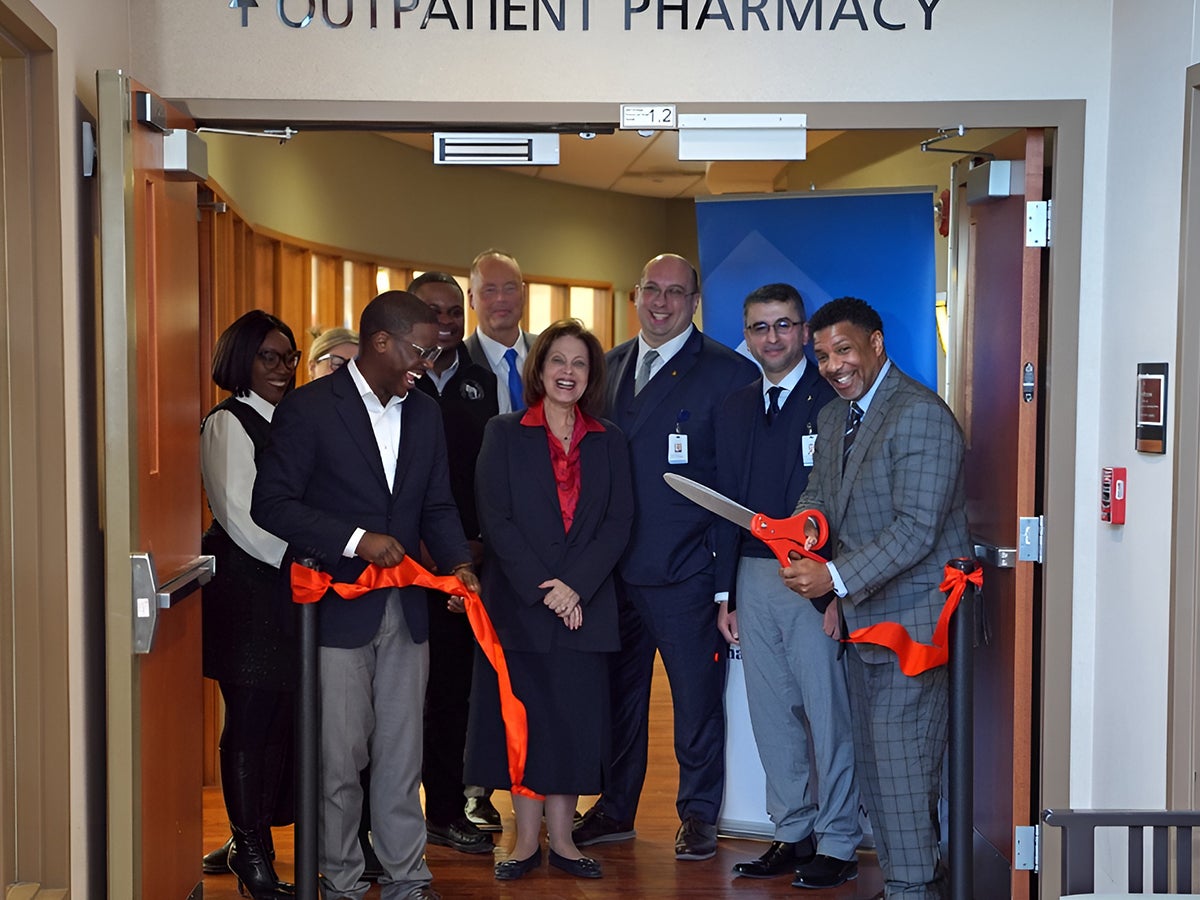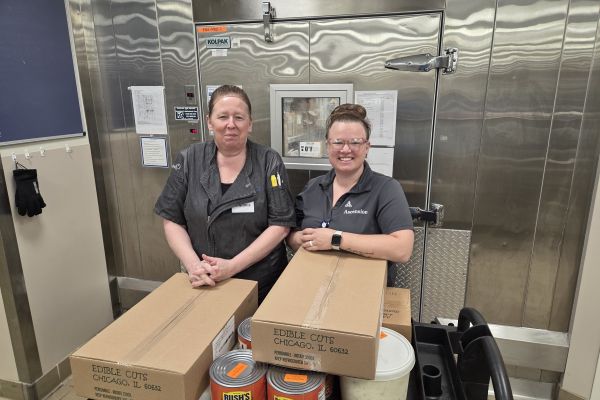No one ever wakes up expecting to go to the Emergency Room.
“I thought I was going to lose my mother,” Goran Milosevic said.
 One day in February, Milosevic’s father walked into the kitchen to make a sandwich - but when he entered, he found his wife, 75-year-old Gvozdenija (Denia) Milosevic, unresponsive, lying on the floor.
One day in February, Milosevic’s father walked into the kitchen to make a sandwich - but when he entered, he found his wife, 75-year-old Gvozdenija (Denia) Milosevic, unresponsive, lying on the floor.
He called 911. After paramedics arrived on scene, they determined she was having a stroke.
“Initially, we thought it might be a seizure,” Ethan Jensen, firefighter and paramedic with the South Shore Fire Dept. said. “You could tell that she had some tension on one side of her body, but the other side was limp and she was also experiencing facial droop.”
During the ambulance ride to Ascension All Saints Hospital, Jensen and the other paramedics took Denia Milosevic’s vitals and continued assessing her condition. When she arrived, emergency medicine physician Ross Skizycki, MD and his team immediately started a CT scan.
“When the CT scan results came back, it was very clear she’d had a stroke,” Dr. Skizycki said. “When a stroke has impacted a large portion of someone’s body pretty severely, that leads us to believe that it’s a blood clot in a bigger vessel that we could potentially go in and remove.”
Denia’s type of stroke was one of only 10-20% of all strokes that require the types of advanced treatment offered at Ascension Columbia St. Mary’s Hospital - Milwaukee campus.
“All of our Ascension Wisconsin primary stroke centers are able to treat patients experiencing a stroke. For the most severe and complex cases requiring highly specialized or highly technical care, we provide that advanced level of care at our Comprehensive Stroke Center at Ascension Columbia St. Mary’s Hospital - Milwaukee Campus and have the ability to transport our patients there quickly,” Ascension Wisconsin Chief Clinic Officer Kevin Casey, DO said.
“When the doctor told us that Flight for Life was on its way for her, I knew it was serious, and there was a possibility that she wouldn’t make it,” Goran Milosevic said about his mother.
“Prior to the patient arriving at Ascension Columbia St. Mary's Milwaukee Campus, we coordinated with the entire care team, which included anesthesia, critical care, neurology and interventional radiology nurses and technologists to ensure we were prepared to care for the patient the minute she got here,” said interventional neuroradiologist and Ascension Chair of Neuroscience, Daniel Gibson, MD.
Dr. Gibson, MD and the Columbia St. Mary’s interventional radiology team successfully performed a thrombectomy to remove the blood clot causing Denia’s stroke, restoring blood flow in less than 5 minutes.
Amazingly, the entire timeline from when Denia first entered the ER in Racine for initial diagnosis to clot removal in Milwaukee took only 90 minutes.
“For most stroke centers, the goal is to start most cases within 90 minutes of patient arrival to the treating facility,” Dr. Gibson said. “To coordinate the diagnosis, triage, transfer, and complete a successful clot retrieval between two hospitals 30 miles apart in the same timeframe, is exceptional. This case truly illustrates what it means to be a system of care.”
“Everyone did everything they needed to do to get this patient taken care of really quickly and get her exactly where she needed to be to take care of her, and it could not have gone better,” Dr. Skizycki said.
Following an in-patient rehabilitation stay at Ascension All Saints, Denia is currently receiving in-home rehabilitation and is attending regular doctor appointments. She is making progress in her recovery every day.
“I wish I knew everyone’s name who cared for my mom so I can thank them all individually,” Goran Milosevic said. “From the first responders who transported my mother to the hospital, to the doctors, nurses, and the rest of the care team who did an amazing job diagnosing the issue, I want to say thank you for doing an amazing job. You are the best of the best.”



